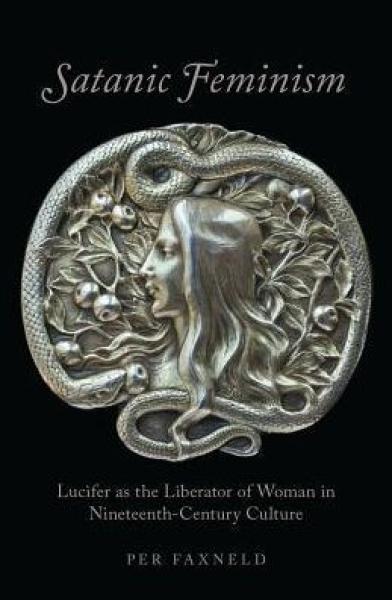Description
According to the Bible, Eve was the first to heed Satan's advice to eat the forbidden fruit and thus responsible for all of humanity's subsequent miseries. The notion of woman as the Devil's accomplice is prominent throughout Christian history and has been used to legitimize the subordination of wives and daughters. In the nineteenth century, rebellious females performed counter-readings of this misogynist tradition. Lucifer was reconceptualized as a feminist liberator of womankind, and Eve became a heroine. In these reimaginings, Satan is an ally in the struggle against a tyrannical patriarchy supported by God the Father and his male priests. Per Faxneld shows how this Satanic feminism was expressed in a wide variety of nineteenth-century literary texts, autobiographies, pamphlets, newspaper articles, paintings, sculptures, and even artifacts of consumer culture like jewelry. He details how colorful figures like the suffragette Elizabeth Cady Stanton, gender-bending Theosophist H. P. Blavatsky, author Aino Kallas, actress Sarah Bernhardt, anti-clerical witch enthusiast Matilda Joslyn Gage, decadent marchioness Luisa Casati, and the Luciferian lesbian poetess Ren�e Vivien embraced these reimaginings. By exploring the connections between esotericism, literature, art and the political realm, Satanic Feminism sheds new light on neglected aspects of the intellectual history of feminism, Satanism, and revisionary mythmaking.
The notion of woman as the Devil's accomplice is prominent throughout Christian history and was used to legitimize the subordination of wives and daughters. In the nineteenth century, rebellious females performed counter-readings of this misogynist tradition and Lucifer was reconceptualized as a feminist liberator. Per Faxneld shows how this surprising Satanic feminism was expressed in a wide range of nineteenth-century texts and artistic productions.
"an authoritative, wide-ranging analysis of a discourse long considered too outlandish to merit much scholarly attention. Bridging literary and religious studies, it reclaims legions of fascinating she-devils to argue persuasively for Satanic feminism as a daring and culturally significant rewriting of Christian myth." -- Dawn Coleman, History of Religions
"Satanic Feminism is strongly recommended to all those interested in understanding the crucial role of Satan in theWestern cultural imagination. ... The author does not restrict himself to a specific focus on Satanism, but interconnects several fields of study, including Western esoteric studies. ... Faxneld's volume goes far beyond prior works on the history of intellectual Satanism." -- Michele Olzi, Aries
The notion of woman as the Devil's accomplice is prominent throughout Christian history and was used to legitimize the subordination of wives and daughters. In the nineteenth century, rebellious females performed counter-readings of this misogynist tradition and Lucifer was reconceptualized as a feminist liberator. Per Faxneld shows how this surprising Satanic feminism was expressed in a wide range of nineteenth-century texts and artistic productions.
"an authoritative, wide-ranging analysis of a discourse long considered too outlandish to merit much scholarly attention. Bridging literary and religious studies, it reclaims legions of fascinating she-devils to argue persuasively for Satanic feminism as a daring and culturally significant rewriting of Christian myth." -- Dawn Coleman, History of Religions
"Satanic Feminism is strongly recommended to all those interested in understanding the crucial role of Satan in theWestern cultural imagination. ... The author does not restrict himself to a specific focus on Satanism, but interconnects several fields of study, including Western esoteric studies. ... Faxneld's volume goes far beyond prior works on the history of intellectual Satanism." -- Michele Olzi, Aries
Last updated on
Product Details
- Oxford University Press, Brand
- Sep 21, 2017 Pub Date:
- 0190664479 ISBN-10:
- 9780190664473 ISBN-13:
- 576 Pages
- 9.3 in * 6.4 in * 1.6 in Dimensions:
- 2 lb Weight:




